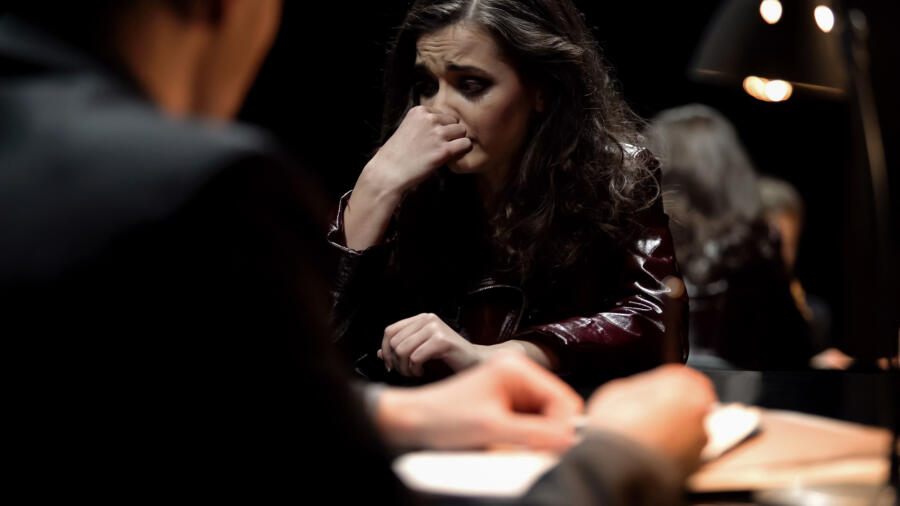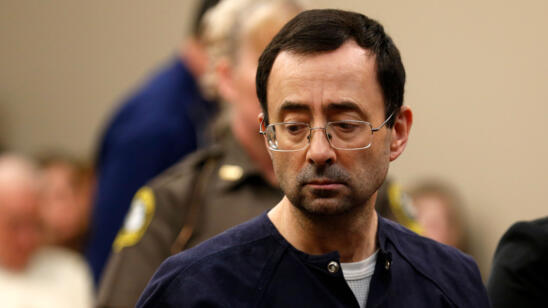More than a million violent crimes are committed each year in the United States. Among them are some of the most heinous offenses—rape, sexual assault and simple and aggravated assault—often perpetrated against women, children, the elderly and other vulnerable populations. Such incidents require a survivor-centered approach and sensitivity, as opposed to one that emphasizes quickly closing cases, but patrol officers and investigators don’t always have this specialized training.
In response, many police and sheriff departments across the nation have established a Special Victims Unit (SVU). Detectives from these units receive the education and resources necessary to ensure survivors are treated with respect and compassion while investigating cases and holding offenders accountable.
A&E True Crime spoke with Detective Stephanie Dorrell of the Douglas County Sheriff Department’s Special Victim’s Unit in Colorado to learn more about these processes and what it’s like working a real-life SVU.
How does the SVU differ from other units within your department? What specialized expertise or training does your SVU possess?
We are a large sheriff’s office, so our Special Victims Unit falls under our Major Crimes section. In our SVU, we have five detectives who work cases. We differ from other units, as our work and process is specifically tailored towards cases that involve children, including child abuse cases, child sex assault cases and child deaths, which are sometimes suspicious.
[Watch The Real SVU on A&E Crime Central.]
We also handle all adult sex assault cases, as well as elder abuse cases. We have detectives in our unit who specifically work on incidents of elder abuse, and then we have other detectives who specifically work ICAC cases, which is Internet Crimes Against Children [a task force program comprised of 4,500 federal, state and local law enforcement and prosecutorial agencies]. Those are the tips we get regarding child pornography and exploitation coming from an IP address within our county or area.
What are your unit’s unique challenges? How is SVU work more difficult than that of other units or divisions?
One of our unique challenges is we have very victim-centered or victim-based interviews. Many of our cases end up being historical, meaning they might have happened two to three years ago. They’re not [crimes] that happened yesterday or recently. Often, we have no or limited physical evidence in our cases.
We also focus more on the effects, or understanding of the trauma that has happened to our victims. We have to be conscious of our questioning and how it impacts them. We work directly with our child and adult protection systems to better collaborate on many of these cases, especially when dealing with the initial impact these crimes have on victims.
Often, when something horrible happens, the trauma has already been done. It’s our job to help them and their families get back onto a new path and, hopefully, a better path in life. But their lives are typically forever changed in some way from these events. We hope to be able to give them hope or the justice they deserve and try to empower them to take back what was taken from them.
How do you conduct your investigations while maintaining sensitivity to victims, especially as you work to identify or apprehend sex offenders?
We empower victims by giving them a choice. We can start off with a simple interview or something more. With children, we specifically conduct forensic interviews. Adults can be more open to talking about what happened to them, but we still give them a choice about what they want to say and how much they want to say.
For some people, it’s enough that they just come in to talk to us and get it off their chest. They might not want to move forward with pursuing criminal charges, while others might. We can move forward if the victim chooses to do so.
If there’s physical evidence, that’s great—and part of our in-depth investigation of a case. We can also utilize investigative techniques like pretext phone calls and text messages. In the state of Colorado, we have laws that allow us to record conversations and interviews to get the other person to admit what happened, or partially what happened, or to apologize for what happened. Again, it’s the victim’s choice. Sometimes doing something like that is just so overwhelming, and it’s not something they want to do right off. It’s [also] something that can be done in the future. Just because they don’t want to move forward now doesn’t mean that they can’t later on.
Do you work with any advocacy groups or organizations that support victims?
We have our own Victim Assistance Unit within our Investigations Division. So, we have our own victim advocates here with us. They have an array of resources at their disposal. We also have a local Children’s Advocacy Center that we use for forensic interviews. All of our detectives are forensically trained as well and can conduct interviews within our unit.
Do you feel a sense of urgency when a new case comes up? If so, how do you balance that desire to quickly solve a case and apprehend an offender with the need to remain objective and composed?
Our number one goal when these cases come up is to make sure that a person is safe. Are they currently in a situation that they need to be immediately removed from? We want to make sure they feel safe moving forward. From there, our cases can be fast-moving in the beginning, because we’re doing these [preliminary] interviews, and sometimes we’re trying these pretext phone calls and text messages. Then we continue to go through a more in-depth investigation. We often have physical evidence we can have processed, which can take a long time.
Being an SVU detective is a calling, and it takes a certain type of person to understand the unique dynamics of these cases. This job isn’t for everyone, but we’re taught from the police academy days to always be composed and objective in any situation that you’re going into. We know our cases take time and diligence, but building a solid case for victims becomes a priority.
At times, you’re dealing with unspeakable crimes. How do you balance the stresses of the job with your own personal life and mental health?
I’m fortunate to have a husband who’s also a detective. He’s somebody I can talk to about how I’m feeling, especially when I’ve had a bad day or a difficult case. I can bounce things off of him. I also have my teammates and unit to discuss things with or process through a case.
It’s important to have self-care at home and other outlets outside of work. With everything we see in this job as a first responder and member of the SVU—all the trauma and what comes with it—being able to have or seek mental health services is huge. Our office has a wonderful wellness program that provides mental health services within our first responder community. It includes therapists and counselors, which I have personally used. That’s a huge support role from our agency.
Related Features:
How Two Detectives Tracked Down a Serial Rapist—After Police Didn’t Believe His First Victim


